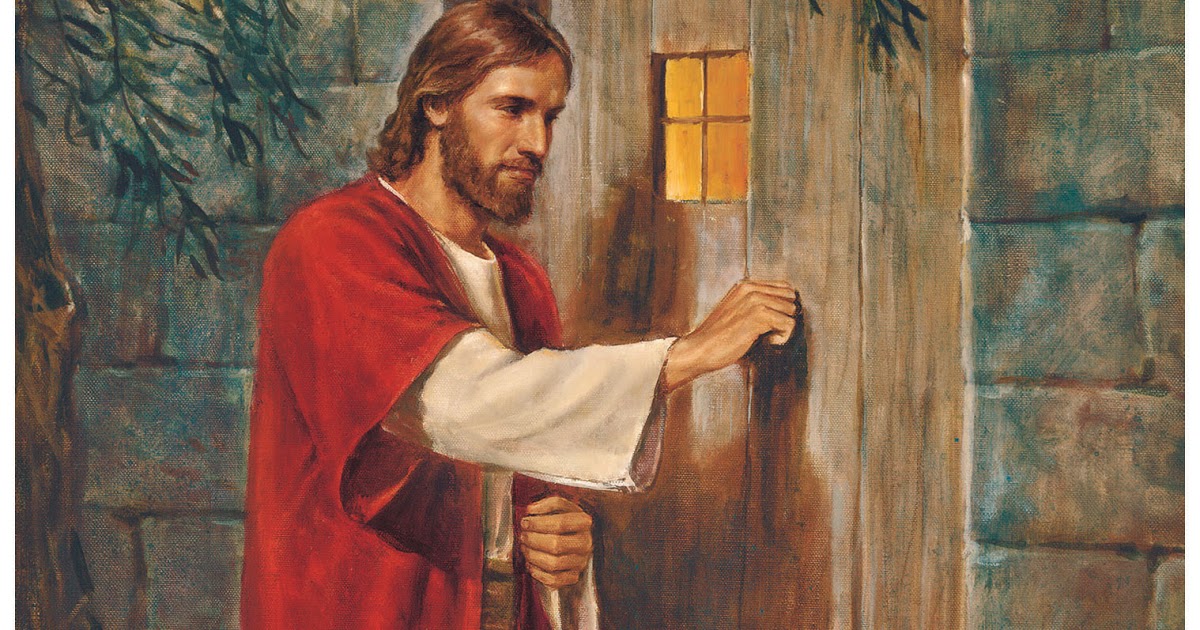Happy Easter to all of you!
No, I am not a week late. No, I am not trying to be facetious. I am simply trying to be realistic.
Last Sunday was Easter for ideal believers.
This is our Easter: the Easter for all the “Thomases” of this world—you know: run-of-the-mill, less-than-perfect, beset with hesitations and doubts, average Christians, like me and you.
Nobody should question our love, our dedication and our devotion to Jesus. And, at the same time, nobody, of course, needs to remind us of how often we broke our covenants with the Lord; how often we fell short of the ideal; and of how, at times, fear and the pressure of life’s demands still get the best of us.
Notice how the gospels do not mention any apparitions of the Risen Lord to Mary, his Mother. Some scholars might say that it was quite clear that he did show himself to her first after his resurrection: there was no need to mention the obvious.
To me the obvious is something else: she did not need to see him raised, because she never hesitated to believe in his words. (Luke 1:45)
The apparitions are for those who are locked in an “upper room” out of fear.
The Good News is that Jesus, victorious over our worst enemies, shows up again just for our sake. Jesus comes back for those who are paralyzed by unsettling events of life, for those overwhelmed by things too big for them to handle, for those who must see and probe and touch and share several meals with their Risen Lord.
We, the modern Thomases, are far from perfect, yet we are decent and dedicated—just like Thomas.
Remember? When all the others were trying to dissuade Jesus from going back to Judea because the Jews were out to get him, Thomas stepped forward and invited the other eleven to go and die with him! (John 11:16)
From time to time we are moved to tears before our Lord and Savior. In spurts of enthusiasm, we give our entire life to him. Touched by grace, we feel propelled forward by sweeping hope towards awesome prospects. We enjoy the consolations and heights of our Catholic faith. We savor them for as long as they last, which is not much. Yet, in reality, even as we can soar to unfamiliar spiritual heights, we dread the prospect of falling short, again; of reneging, again; of having to trim down the size of our commitment to him, again.
The best part of the Good News today is precisely this: the Lord enters in spite of our attempts to keep ourselves safe and protected from additional disappointments. Carefully locked doors cannot keep him from reassuring our unsettled hearts.
The Church, who is made up of people like us, does not resort to resounding projects and grandiose plans to increase our faith and our trust in the Risen Lord. No, the Church invites us to forget our past of hesitations, doubts, disappointments and even our occasional cynicism. She urges us to aim at incredible feats that are, realistically, within our spiritual reach based on what we have already achieved relying fully on God’s grace.
This is how we ought to reason: none of us would ever doubt the Father’s love for His Son Jesus; yet, that infinite love did not keep the Father from sacrificing his Son, from delivering Jesus to a most shameful and painful death.
The Church wants us to dwell on this thought only for the reason of appreciating the infinite love of both Father and Son to secure fullness of life for us here on earth, first, and then into eternity. Furthermore, our Church wants us to imbue our minds, hearts and senses with the incredible reality of God’s vindication of his Son Jesus through the Resurrection. The new birth to endless life, which is our destiny, is the outcome of the cross, before being the outcome of the Resurrection. This pattern of life through pain and death first, is the only pattern that guarantees us immortality and glory. It is the only pattern which vouchsafes a reality that transcends this world of imperfections, setbacks, disappointments sprinkled with modest achievements.
Peter reminds us that this new life begins in us through baptism into Christ. But for it to develop, to unfold, to blossom into all its beauty, to become an imperishable inheritance, must be lived according to the pattern tested successfully by Jesus.
“In this you rejoice, although now for a little while you may have to suffer through various trials, so that the genuineness of your faith, more precious than gold that is perishable even though tested by fire, may prove to be for praise, glory, and honor at the revelation of Jesus Christ. Although you have not seen him you love him; even though you do not see him now yet believe in him, you rejoice with an indescribable and glorious joy, as you attain the goal of (your) faith, your salvation.” (1 Pet. 1: 5-9)
Here we have the pattern lived by Jesus with courage and trust in the love of the Father. Here we have also the pattern presented to Thomas and by him turned down, at first, because of the risks involved.
The gospel passage from John (20:19-31) teaches us instead that since we, too, love Jesus, we should not demand to touch, to see him physically, to put our fingers into his wounds, but to keep loving him and ground our trust in the Father’s love for Jesus and for us in him.
We are invited then to open our eyes enlightened by this new insight and “see” and “touch” and welcome and break bread with the Risen Lord in our midst. We are invited also to find him, just as real as he was before mortified Thomas, in every other member of God’s new family gathered in our churches today.
Granted: our track record disqualifies us from most elite groups but not from our Church, from God’s new family. For this reason, in our imperfect, frail and struggling Church we shall find the courage to endure our share of setbacks and disappointments.
In our Church we shall find the hope-charged resolve to follow the pattern proposed by the Father to each one of us.
In our Church we shall find our Risen Lord and shall “touch” him, not to bolster our evidence of his Resurrection, but in order to attend to the new wounds we notice on his Body.
Thus, in our Church we shall be blessed by the Father for believing, and for seeing beyond what our eyes of flesh can see.








